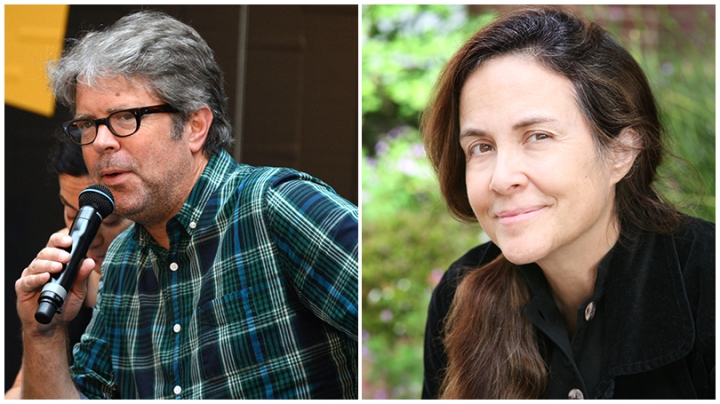A few years ago, The Guardian asked Jonathan Franzen, among other prominent contemporary writers, for “ten rules for writing fiction.”
On his list, Franzen—who will be on campus April 17 for a public reading and conversation at 4 p.m. in Haldeman 041—offered advice that ranged from his perspective on craft (“Write in the third person unless a really distinctive first-person voice offers itself irresistibly”) to editorial pet peeves (“Never use the word ‘then’ as a conjunction—we have ‘and’ for this purpose. Substituting ‘then’ is the lazy or tone-deaf writer’s non-solution to the problem of too many ‘ands’ on the page.”).
But his first rule will feel familiar to fans of his best-selling novels and his many essays and short stories: “The reader is a friend, not an adversary, not a spectator.”
To enter a Jonathan Franzen novel is to be invited into a story like a long-lost cousin invited to a dysfunctional family’s reunion. You belong there, you are welcome, even loved—and these people’s complicated self-deceptions remind you, disturbingly, of your own.
In The Corrections (a literary sensation in 2001, when it won the National Book Award and managed to both receive and lose Oprah’s book club blessing), the self-absorbed adult children of a white Protestant Midwestern couple go to great lengths to avoid making the course corrections necessary to come together as a family and transcend the existential crises of late-20th-century American life.
Nine years later (with the author back in Oprah’s good graces), Franzen’s Freedom follows members of another family across the vast canvas of Bush-era social breakdown, unmasking the inherent contradictions that arise when individual notions of freedom are at odds with the freedom of other people. And in his most recent novel, Purity, published last year, Purity “Pip” Tyler’s search for the father she’s never known opens yet another sprawling mystery that crosses international, social, and emotional boundaries.
Franzen is the latest author to visit campus this year in a series sponsored by the Leslie Center for the Humanities. The series has included graphic novelist Marjane Satrapi and Booker Prize-winner novelist Marlon James.
On May 3, the series continues with poet Naomi Shihab Nye, who will speak at 4 p.m. in Haldeman 246. Nye has published more than 30 books of poetry, as well as essays and children’s novels and poems. She has received numerous literary awards, including honors from the International Poetry Forum, four Pushcart Prizes, and a Guggenheim Fellowship, and in 2009 was elected a chancellor of the Academy of American Poets.
The daughter of a Palestinian refugee, Nye grew up in St. Louis, Jerusalem, and San Antonio (where she still lives), and her work frequently reflects her experience of bridging cultures—as well as her belief in our common humanity.
“There’s a place in my brain,” she writes in the poem Jerusalem, “where hate won’t grow. / I touch its riddle: wind, and seeds. / Something pokes us as we sleep.”


